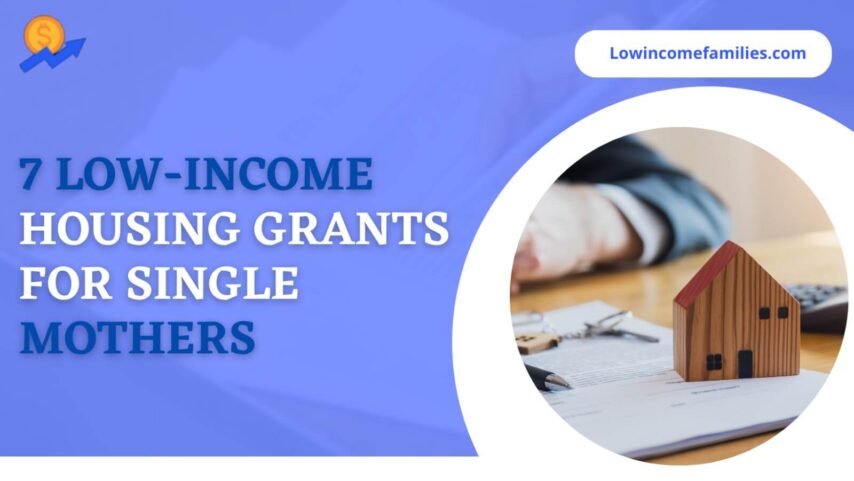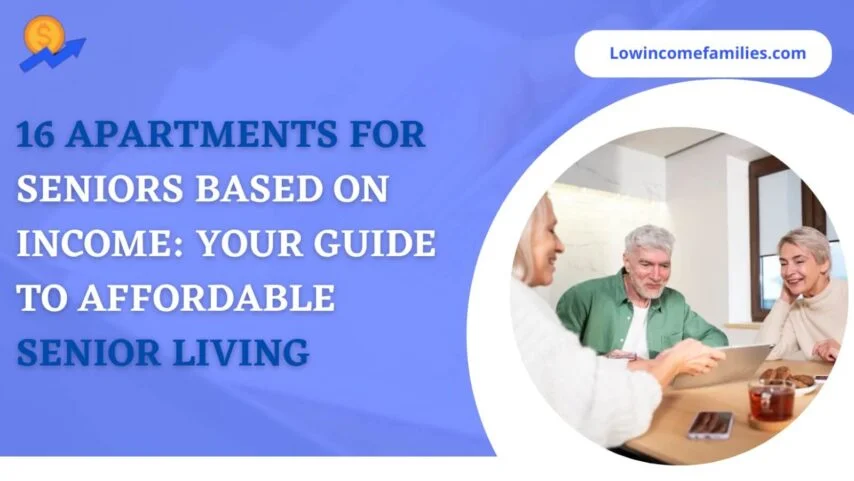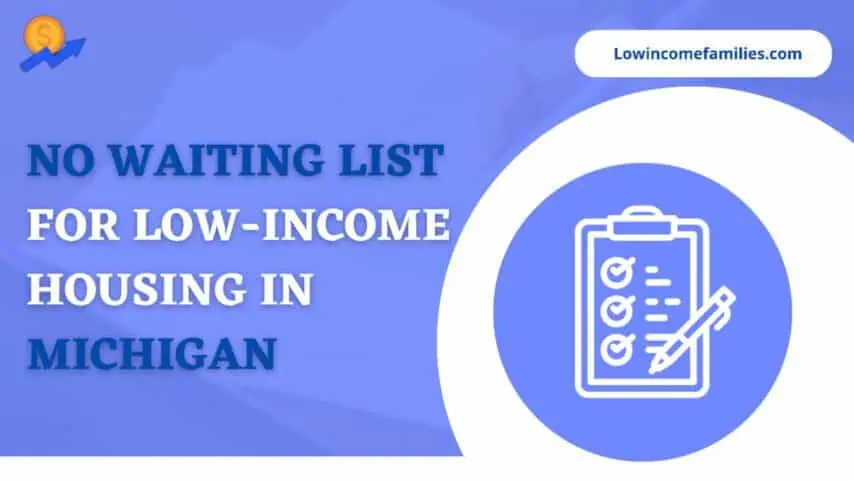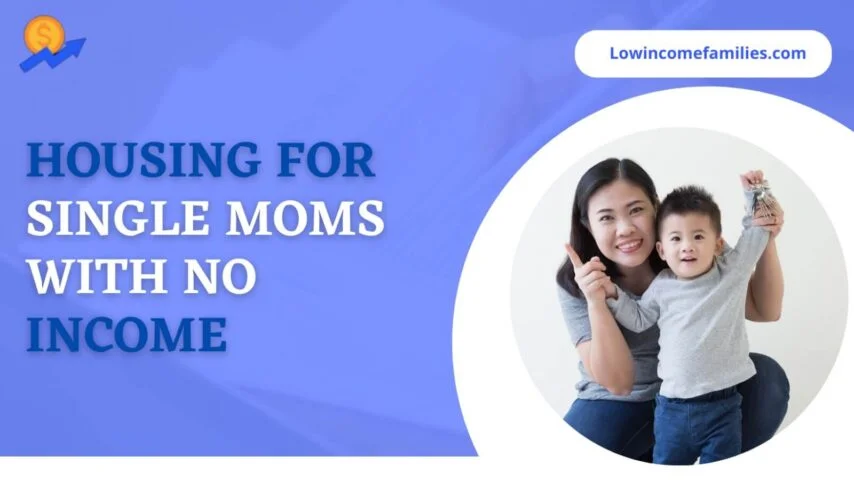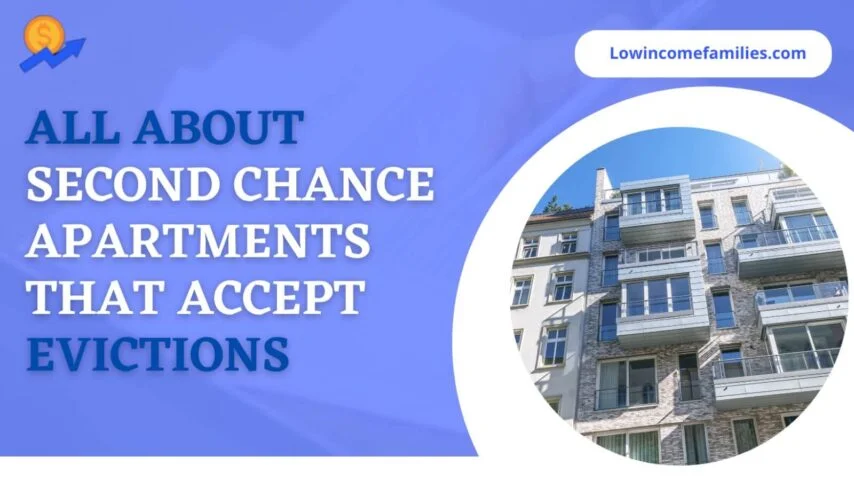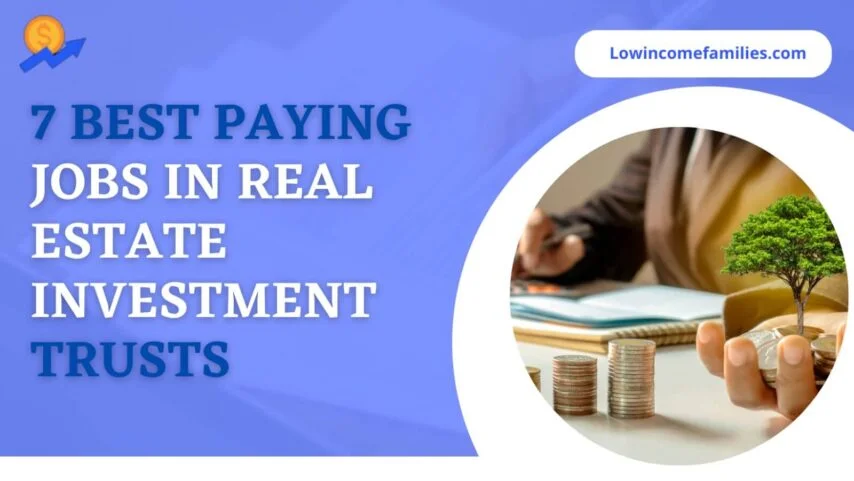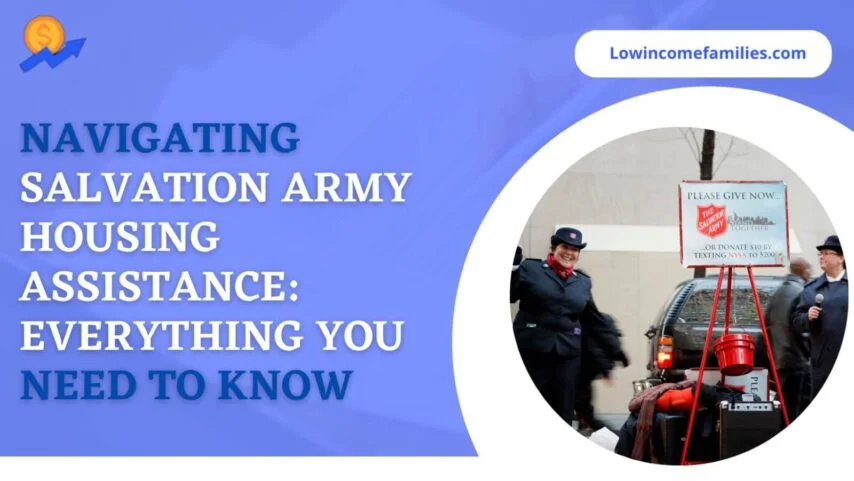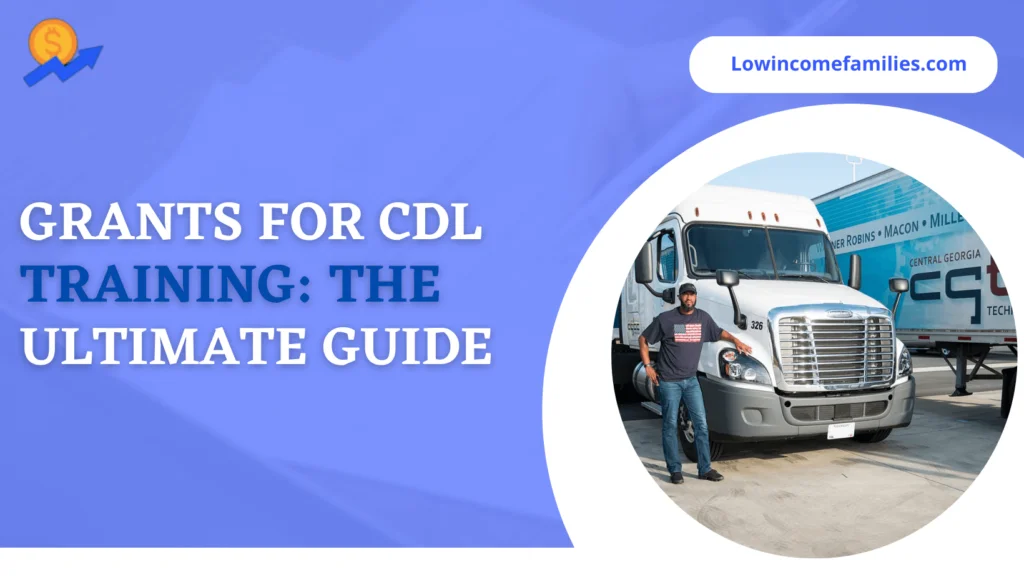However, there are several low-income housing grants for single mothers available. Single mothers often bear the brunt of financial hardship when finding affordable housing. Despite their best efforts, many struggle to make ends meet and provide a safe home for their children.
In this post, we will explore seven programs that support single mothers needing affordable housing solutions.
So whether you’re feeling overwhelmed by rent or struggling with mortgage payments, keep reading to discover valuable resources to assist you on your journey towards stability and security!
Housing Assistance For Single Mothers
There are several low-income housing assistance options available for single mothers. The best place to start is by contacting your local Department of Housing and Urban Development (HUD) office or visiting their website. The most common programs include public housing, Section 8 housing vouchers, and Low-Income Housing Tax Credits.
Housing Grants For Pregnant Women
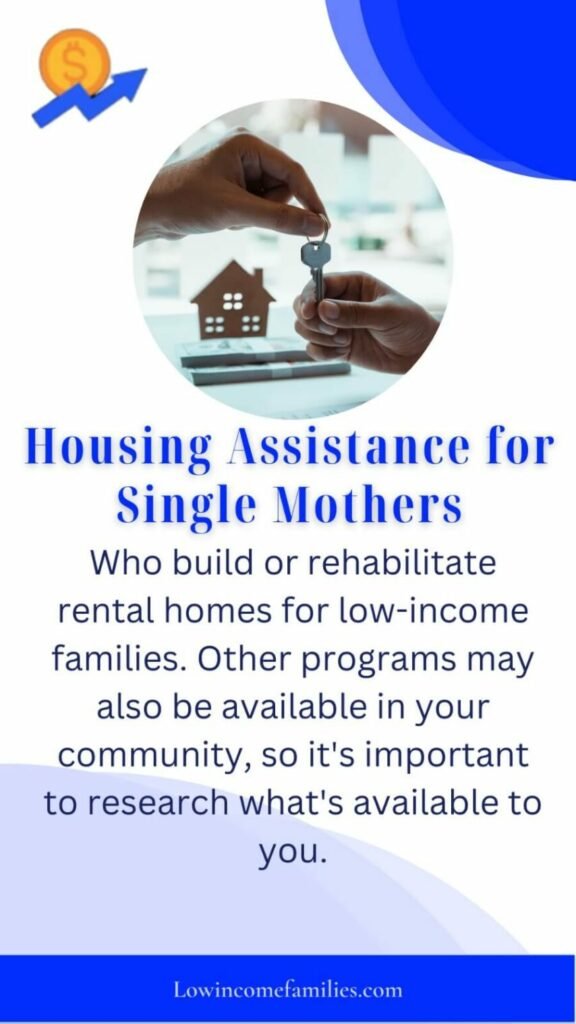
Public housing is owned and managed by state or local governments and is available to low-income families, seniors, and the disabled. There are usually waiting lists for public housing, so it’s important to apply as soon as possible.
Section 8 housing vouchers can help you pay rent on a private apartment or home. To qualify, you must meet certain income guidelines and be able to find a participating landlord.
The Low-Income Housing Tax Credit program provides tax credits to developers who build or rehabilitate rental homes for low-income families. Other programs may also be available in your community, so it’s important to research what’s available to you.
Free Apartments for Single Moms
Resources For Housing Assistance For Single Mothers
There are many low-income housing assistance options for single mothers. These options include government programs, non-profit organizations, and private companies.
-
Government Programs
The U.S. Department of Housing and Urban Development (HUD) offers a variety of housing assistance programs for low-income individuals and families.
Some of these programs include the Housing Choice Voucher Program, the Public Housing program, and the Section 8 Project-Based Rental Assistance program. To learn more about these programs, visit HUD’s website or contact your local HUD office.
Single Moms First Time Home Buyer Grants
-
Non-Profit Organizations
Many non-profit organizations offer low-income individuals and families housing assistance. Some of these organizations include Habitat for Humanity, Salvation Army, and Catholic Charities.
To find an organization that offers housing assistance, visit the National Low Income Housing Coalition’s website or contact your local United Way office.
-
Private Companies
Several private companies offer low-income individuals and families housing assistance. Some of these companies include Low-Income Housing Tax Credit Developers and Property Management Companies.
To find a list of private companies that offer housing assistance, visit the Low Income Housing Institute’s website or contact your local Chamber of Commerce office.
How To Rent an Apartment Without Proof of Income
Types Of Low-Income Housing Assistance Programs
Many different types of low-income housing assistance programs are available to single mothers. The most common type of program is the Section 8 Housing Choice Voucher Program, which provides voucher holders with subsidies that can be used to help pay for rent.
Other programs include the Low-Income Housing Tax Credit program and public housing developments.
Second Chance Apartments That Accept evictions
-
The Section 8 Housing Choice Voucher program
The Section 8 Housing Choice Voucher program is a federally funded program that helps low-income families, including single mothers, afford safe and clean housing.
Vouchers are distributed by local housing authorities and can be used to cover a portion of rent at participating landlords. To be eligible for a voucher, households must earn below a certain income limit, which varies by area.
-
The Low-Income Housing Tax Credit (LIHTC) program
The Low-Income Housing Tax Credit (LIHTC) program is another federal program that incentivizes developers to build or rehabilitate rental housing for low-income households.
LIHTC apartments are typically reserved for households who earn below 60% of the area median income. Single mothers who qualify for LIHTC housing generally pay no more than 30% of their income towards rent.
-
Public Housing
Public housing authorities own public housing developments. Public housing residents must also meet certain income requirements. Still, unlike voucher holders or tenants in LIHTC units, they do not have to find their unit – they are assigned one by the public housing authority.
Public housing developments come in various sizes and types, from high-rise apartments to small single-family homes.
-
The U.S. Department Of Housing And Urban Development
In addition to these programs, other organizations and resources can help single mothers find affordable housing. For example, the U.S. The Department of Housing and Urban Development offers a variety of grants and loans that can be used for housing repairs or renovations.
Local churches and nonprofits may also offer transitional housing or emergency shelters, while state and local governments may have rent subsidies or homeless prevention programs available.
-
The Operation HOPE Home Buyers Program
The Operation HOPE Home Buyers Program is designed to assist low-income single mothers in purchasing a home.
The program provides grant money to help with the down payment and closing costs on a home and financial counseling and education to help prepare for homeownership. The program is available in select cities across the United States.
-
The HOME Investment Partnerships Program (HOME)
The HOME Investment Partnerships Program (HOME) is a federal grant program that helps states and localities create affordable housing for low-income families.
The program grants states and localities the ability to fund various activities, including the construction, rehabilitation, and operation of affordable housing developments.
States and localities must meet certain requirements to be eligible for a HOME grant. For example, they must have a plan to address the needs of low-income families and an approved application from the Department of Housing and Urban Development (HUD).
If you struggle to afford a house, you may be eligible for assistance through the HOME program. Talk to your state or local housing authority about whether they offer programs to help you.
-
Supplemental Nutrition Program For Women, Infants, and Children (WIC)
The Supplemental Nutrition Program for Women, Infants, and Children (WIC) is a federally funded program that provides low-income pregnant women, new mothers, and young children access to healthy food and resources.
WIC helps to ensure that pregnant women and young children get the nutrients they need to stay healthy and thrive. To be eligible for WIC benefits, participants must meet certain income guidelines. WIC also has certain residency requirements, which vary by state.
Once applicants are found eligible for the program, they will be given a WIC folder containing important information about the program and vouchers that can be used to purchase WIC-approved foods at participating stores.
WIC-approved foods include baby formula, milk, eggs, cheese, cereal, whole wheat bread, peanut butter, and beans. These foods are essential for pregnant women and young children to get the nutrients they need to stay healthy.
The WIC program also offers nutrition education and counseling to help participants make healthy choices for themselves and their families.
If you are a low-income pregnant woman or a new mother struggling to provide nutritious food for your child/children, please consider applying for the Supplemental Nutrition Program for Women, Infants and Children (WIC).
Eligibility Requirements For Low-Income Housing Assistance
To be eligible for low-income housing assistance, households must earn below a certain income threshold. This threshold varies by family size and geographical location. Generally, families eligible for low-income housing assistance pay no more than 30% of their monthly income on rent and utilities.
Contact your local public housing authority or search for affordable housing options to determine if you are eligible for low-income housing assistance.
How To Apply For Low-Income Housing Assistance?
There are many low-income housing assistance options available for single mothers. The first step is to determine if you are eligible for any of the programs.
To do this, you will need to contact your local public housing agency or the Department of Housing and Urban Development. Once you have determined which programs you may be eligible for, you can begin applying.
When applying for low-income housing assistance, the most important thing to remember is to be honest, and truthful about your circumstances.
Be sure to include all required documentation, such as proof of income and assets. If you are unsure what information is required, ask the housing agency or department representative.
Once the housing agency or department reviews your submitted application will be placed on a waiting list for available units if approved. It is important to remember that there may be a long waiting list for some programs, so patience is important.
If you have any questions during the application process, ask the housing agency or department representative for help. They can provide valuable information and resources to help make the process go more smoothly.
Alternatives To Low-Income Housing Assistance
Several alternative housing options exist for single mothers who do not qualify for low-income housing assistance. One option is to live in a homeless shelter. Shelters can provide single mothers with a safe place to stay, meals, and access to social services.
Another option is to live in transitional housing. Transitional housing is typically short-term and supports single mothers as they work to transition into permanent housing. Other alternatives include staying with family or friends, couch surfing, or living in their car.
Conclusion:-
Low-income housing assistance options can provide much-needed relief for single mothers. It is important to research all your available options and take advantage of the most beneficial ones.
The Housing Choice Voucher Program, USDA Rural Development Direct Home Loan Program, HUD Public Housing Programs, Income-Based Housing Assistance Programs and Affordable Apartment Options are great resources that will help you make do with a smaller budget while providing a safe environment for your family to live in.
With patience and determination, these programs can put space between you and financial hardship.
Frequently Asked Questions
Can single mums get help?
Yes, there are many organizations and government programs that offer assistance to single mothers. Housing grants are one type of assistance that can help single mothers with low incomes afford a place to live.
How can a single mom make money without help?
There are many ways for single mothers to make money on their own. They can start businesses, work from home, or find part-time or full-time jobs.
Does Florida help single mothers?
Florida offers several programs and services to help low-income single mothers. These include housing assistance, food assistance, and healthcare assistance.
How to be a single mom?
Every mother has her own unique set of circumstances and experiences. However, some general tips can be helpful for all single mothers, such as building a strong support network and creating a budget.
What is the difference between a single mother and a single parent?
A single mother is a female parent raising her children without a partner, while a single parent can refer to either a male or female raising their children without a partner.
